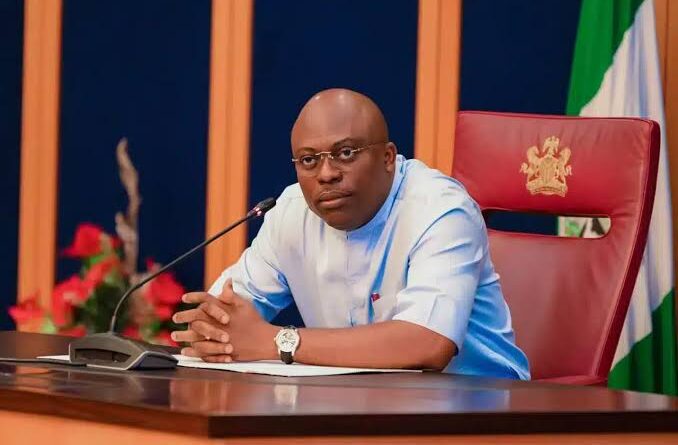Court Rejects Fubara’s N800 Billion Budget
The N800 billion budget approved by the Edison Ehie-led faction of the Rivers Assembly and signed into law by Governor Siminalayi Fubara has been declared void by Justice James of the Federal High Court Abuja.
The court also upheld the lawsuit that Fubara was sued in by the Assembly and Speaker Martin Amaewhule. The lawsuit sought, among other things, an injunction prohibiting the governor from impeding the Assembly while he was speaker.
On Thursday, December 14, 2023, Governor Siminalayi Fubara officially signed the N800 billion 2024 budget into law, just twenty-four hours after it was submitted for approval to the House of Assembly by its four members.
The presentation took place at the Government House in Port Harcourt after the state government demolished the Assembly Complex and a judge barred Martins Amaewhule, the opponent of Ehie, from using it.
With the intention of tackling socioeconomic inequality in the state and fostering inclusive growth for the economy, Ehie and the other lawmakers who supported Fubara passed the budget estimates and the governor signed the legislation into law.
A meeting between the two parties and President Bola Tinubu in Abuja resulted in Ehie resigning from the House and Amaewhule being reinstated as Speaker of the Assembly.
Amaewhule and 25 other lawmakers loyal to ex-Governor Nyesom Wike subsequently demanded that Fubara present the 2024 budget estimates to the Assembly afresh and the matter was taken to court.
Attorney Ken Njemanze, who represents Amaewhule, charged on Monday that the governor is violating the concept of the separation of powers by meddling in the operations and duties of the state legislature.
He, therefore, sought an “order of injunction restraining the 1st to 10th defendants (NASS) from entertaining any request from the 11th defendant (Fubara) to take over the performance of the functions of Rivers Assembly, including its role to make laws for the peace, order and good government of Rivers in respect of matters that are within its constitutional and legislative competence”.
“An order of mandatory injunction compelling the Inspector General of Police (whether by himself or by officers and men of the Nigeria Police Force under his command) to provide and continue to provide adequate Security and protection for the 1st Plaintiff under the leadership of the 2nd Plaintiff as the Speaker of the Rivers State House of Assembly for the purpose of transacting the business of the 1st Plaintiff.
“An order restraining Fubara including the 12th, 13th and 14th defendants from withholding any amount standing to the credit of Rivers Assembly in the state’s Consolidated Revenue Fund, including salaries and emoluments due and payable to the speaker, deputy speaker and other members of the house as well as to the clerk, deputy clerk and other members of staff of the assembly,” the plaintiff’s prayed among other reliefs.
In the alternative, the plaintiff sought an order of injunction restraining the respondents from denying the Assembly the due funds for running its affairs including the payment of salaries, allowances, emoluments and meeting its financial obligations no matter how described.
Alternatively, the plaintiff requested an order of injunction prohibiting the respondents from withholding from the Assembly the necessary monies to manage its operations, including paying salaries, allowances, and emoluments, as well as fulfilling its financial commitments, regardless of how they were described.
First, the 17th defendant, Ehie, announced his resignation from the River State Assembly through his attorney, Oluwole Aladedoye, according to Justice James Omotosho.
According to Omotosho, the suit was duly filed before him notwithstanding the preliminary objection that questioned his court’s jurisdiction.
In response to the plaintiffs’ argument regarding the governor’s authority, Omotosho stated that local governments, the state Assembly, and the executive branch of government all have the same authority to enact laws in a state.
According to the judge, the National Assembly can only assume the State Assembly’s responsibilities when the state legislators are no longer in session and carrying out their official duties as stipulated by the 1999 Constitution and further pertinent laws.
“There is nothing before this court showing that the River State House of Assembly is unable to carry out its functions,” Justice Omotosho said, and ruled that the issue was resolved in favour of the plaintiffs.




